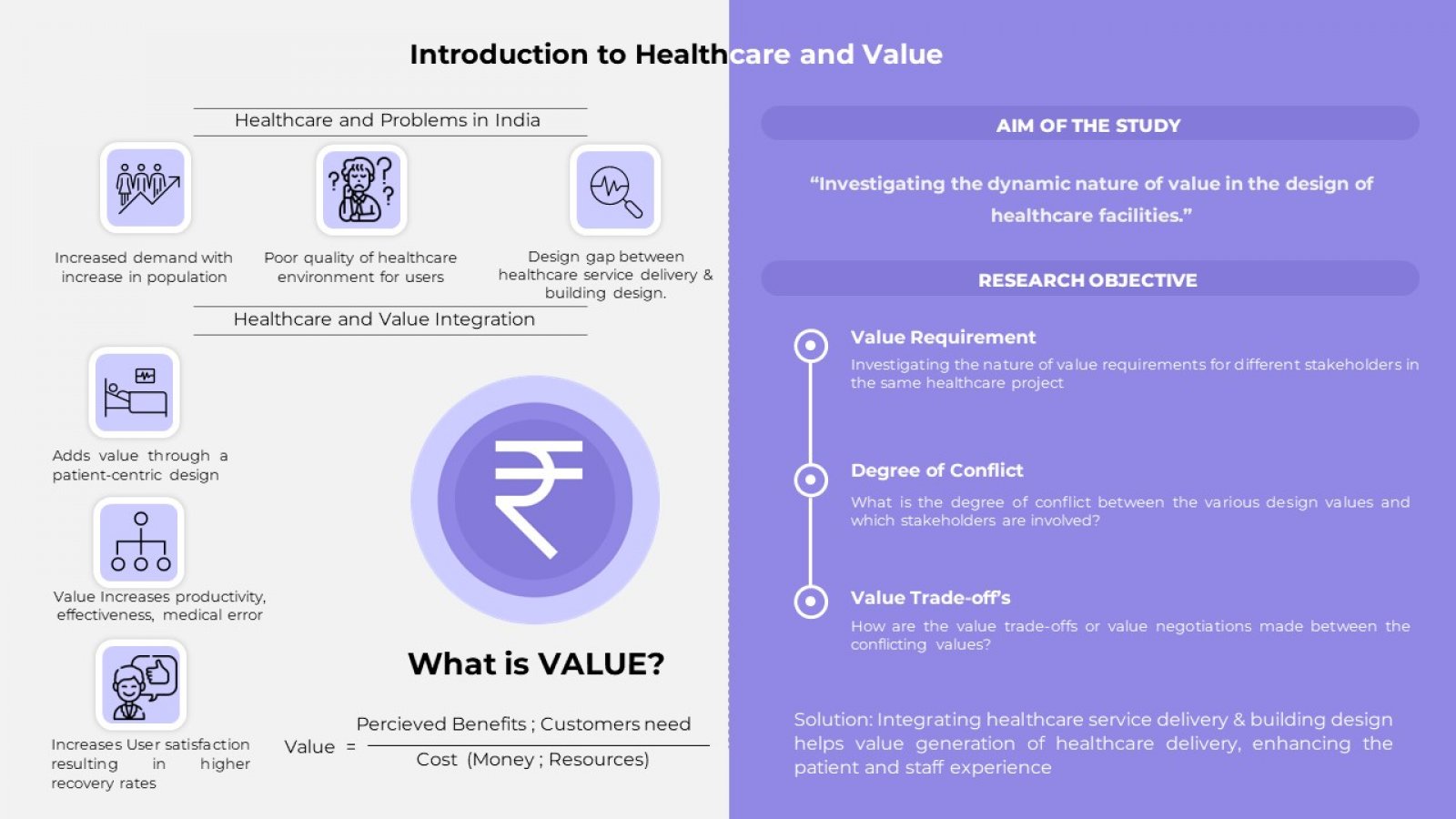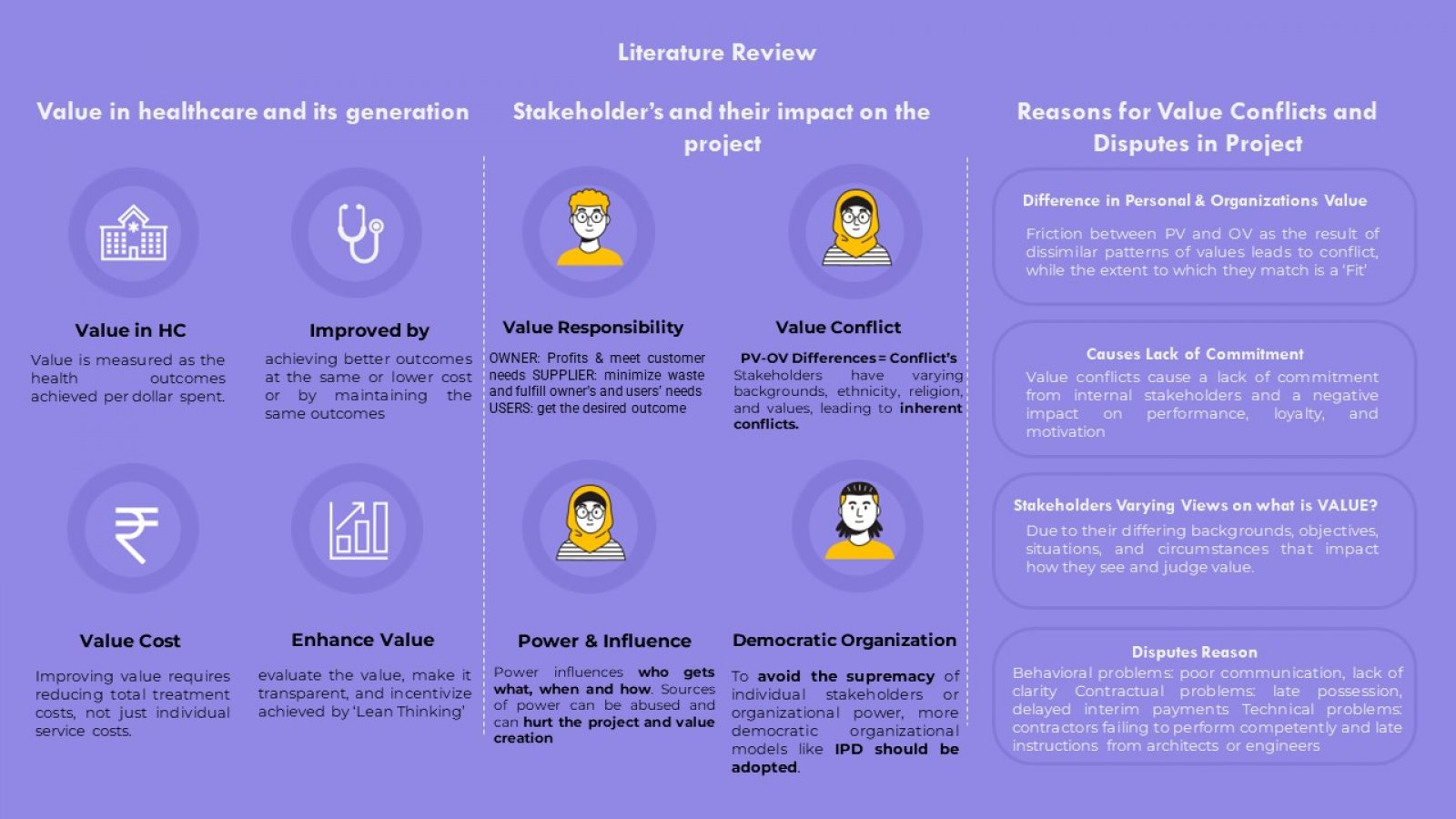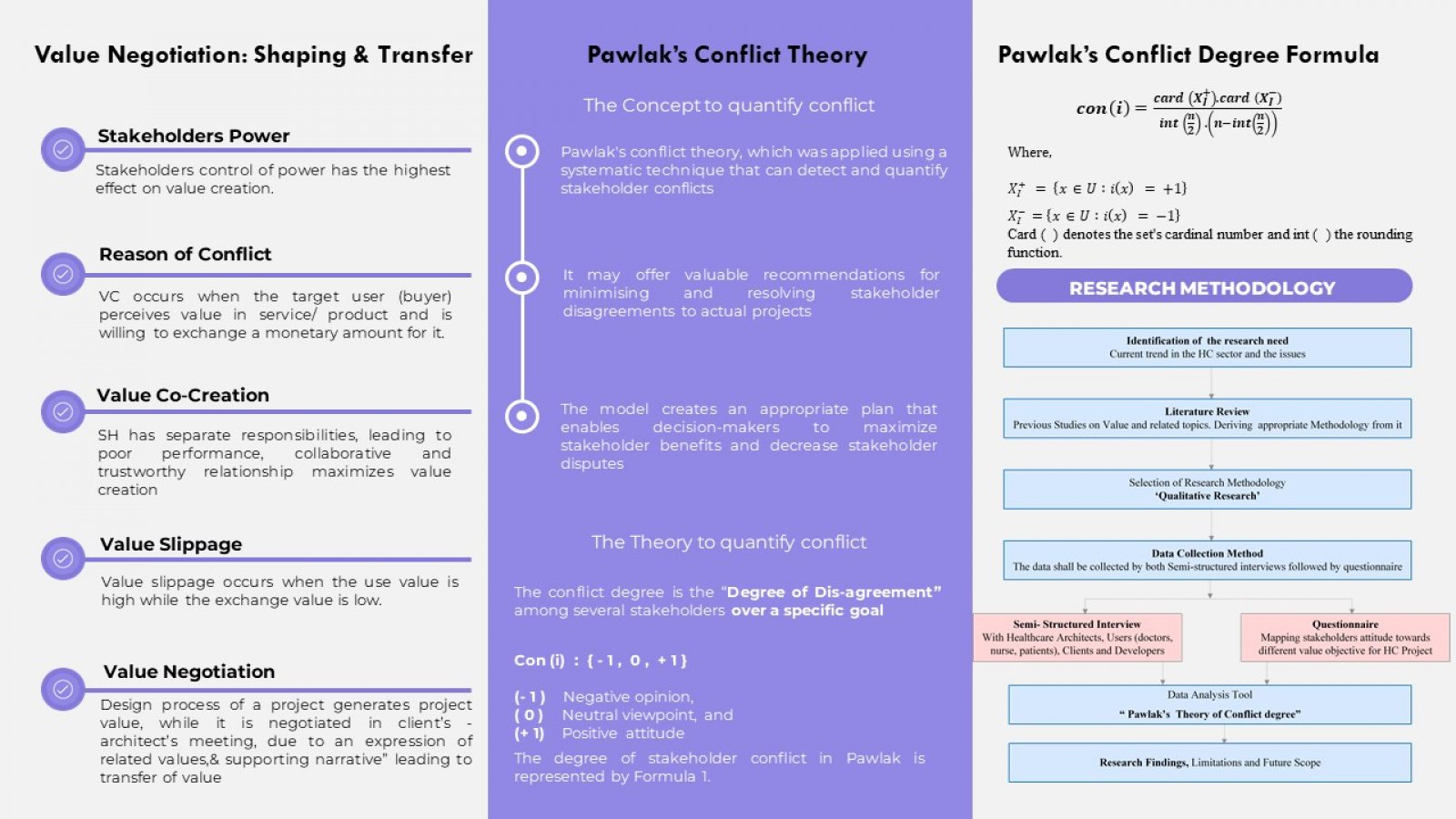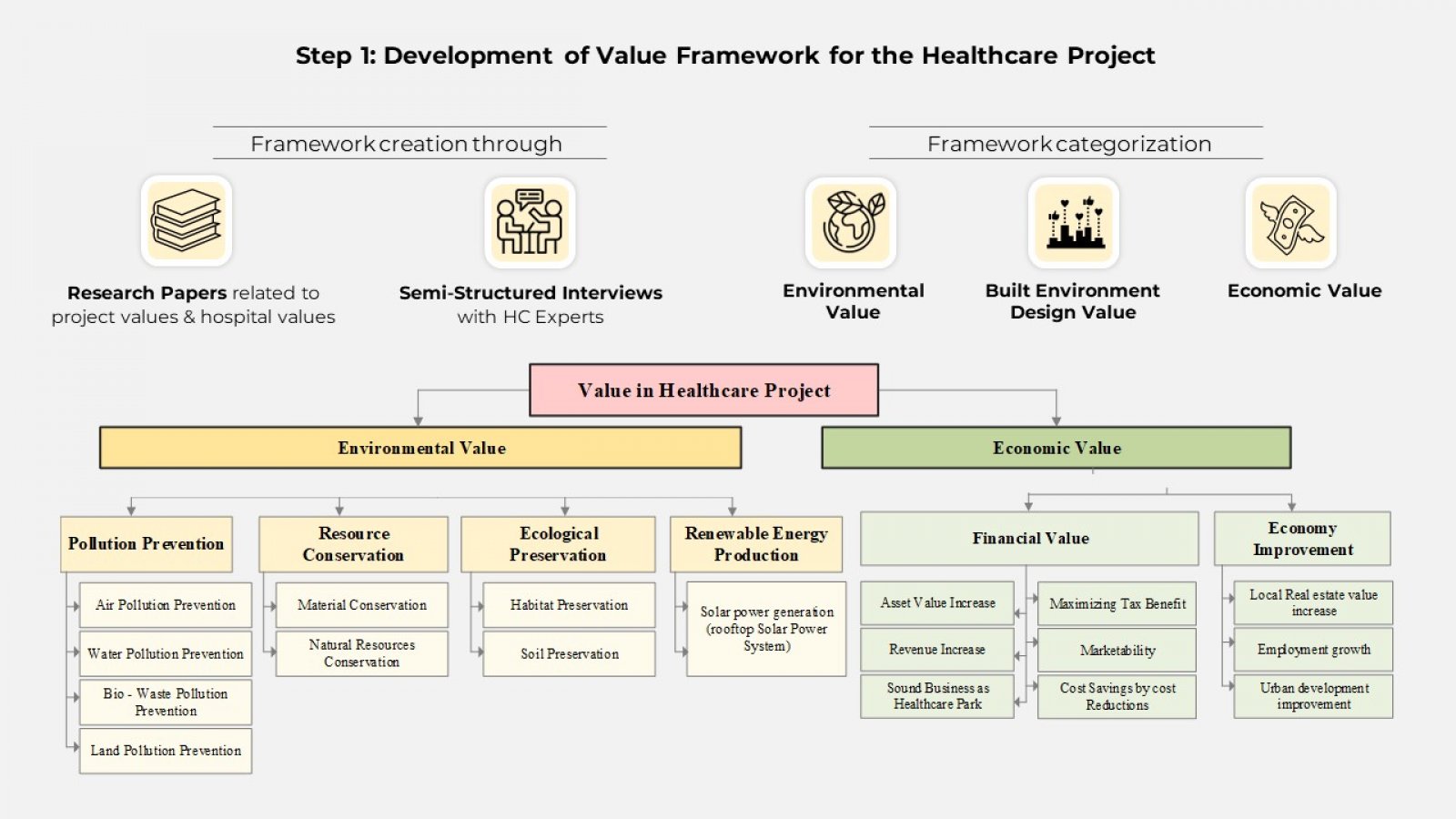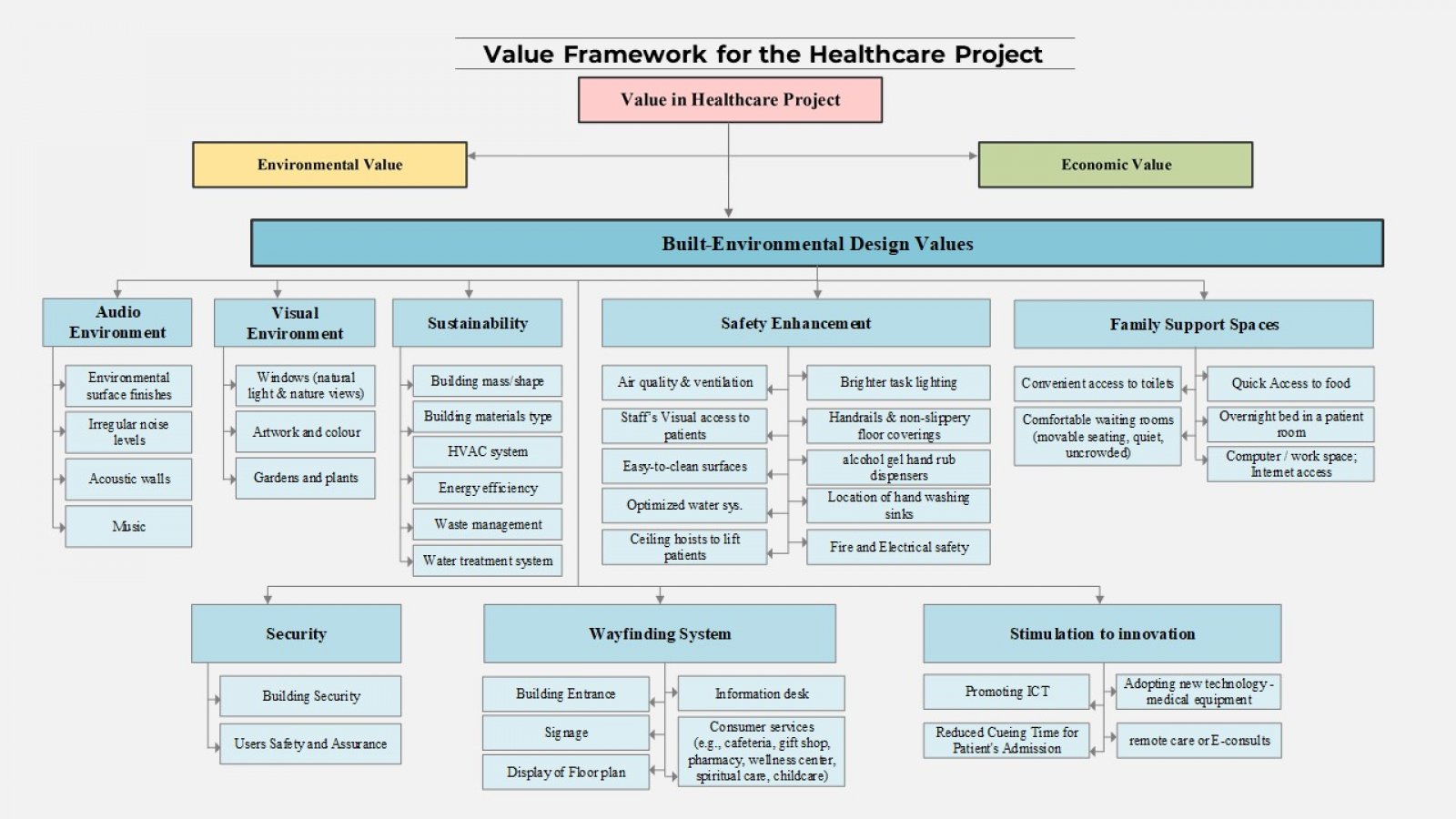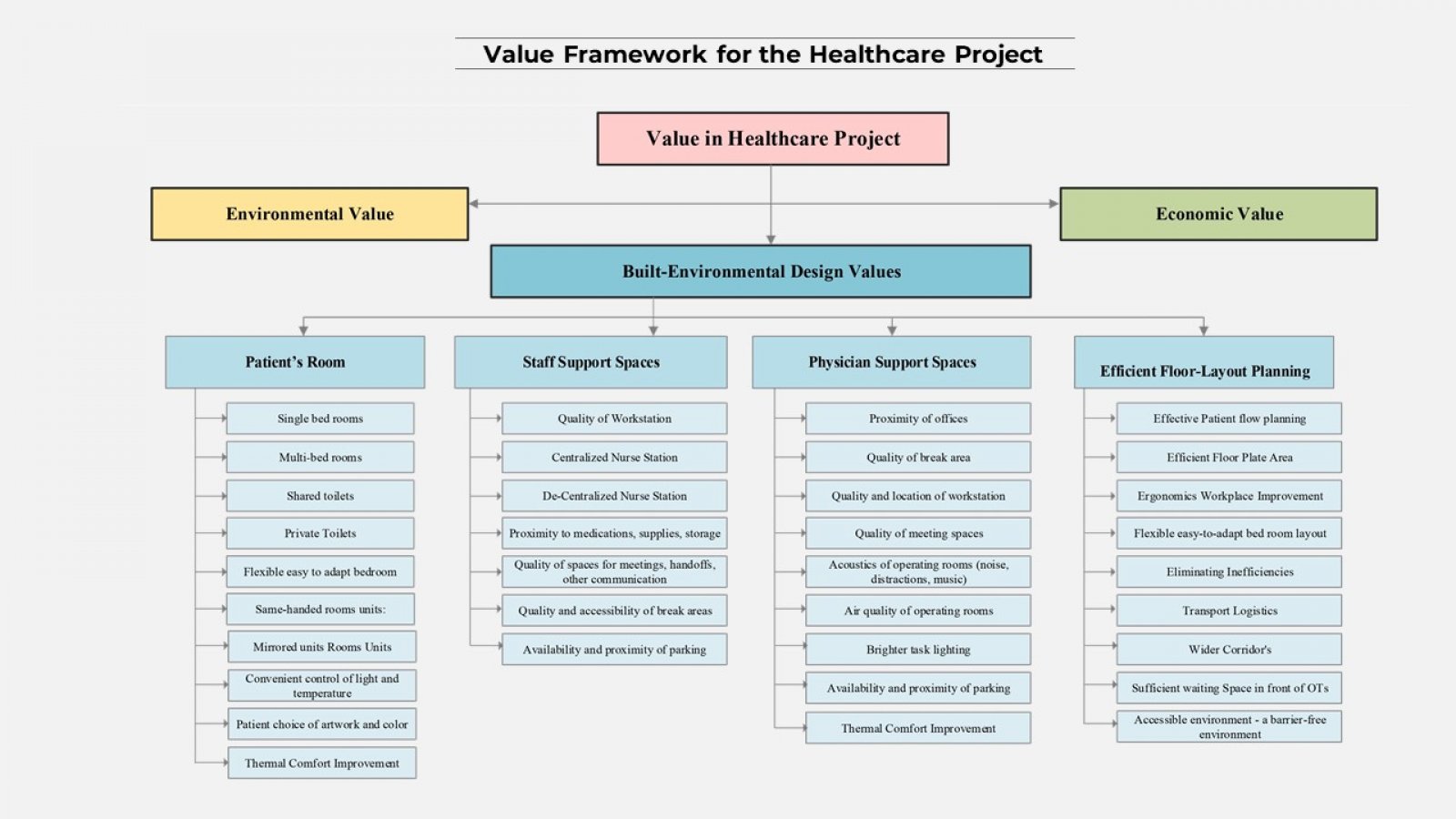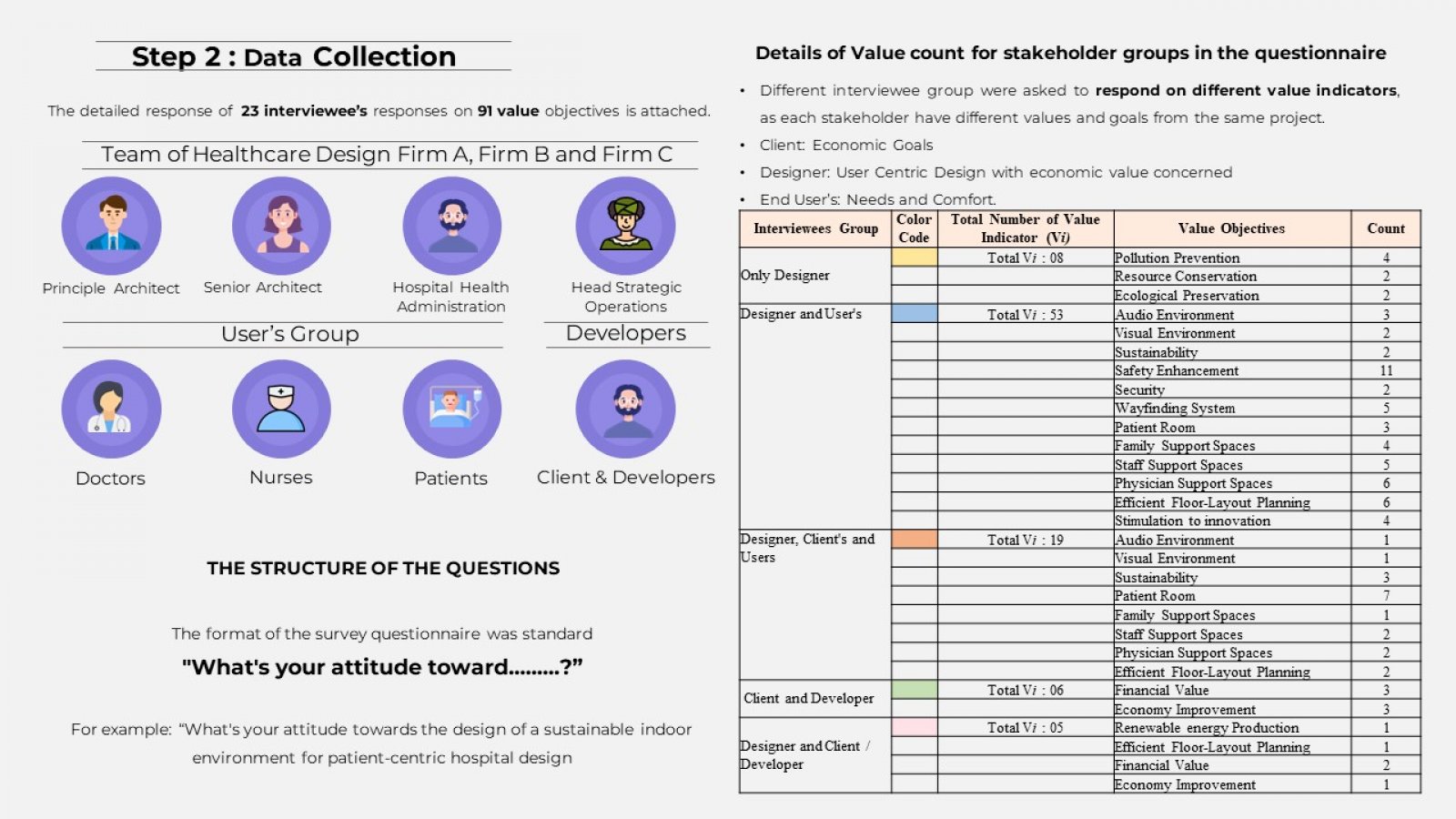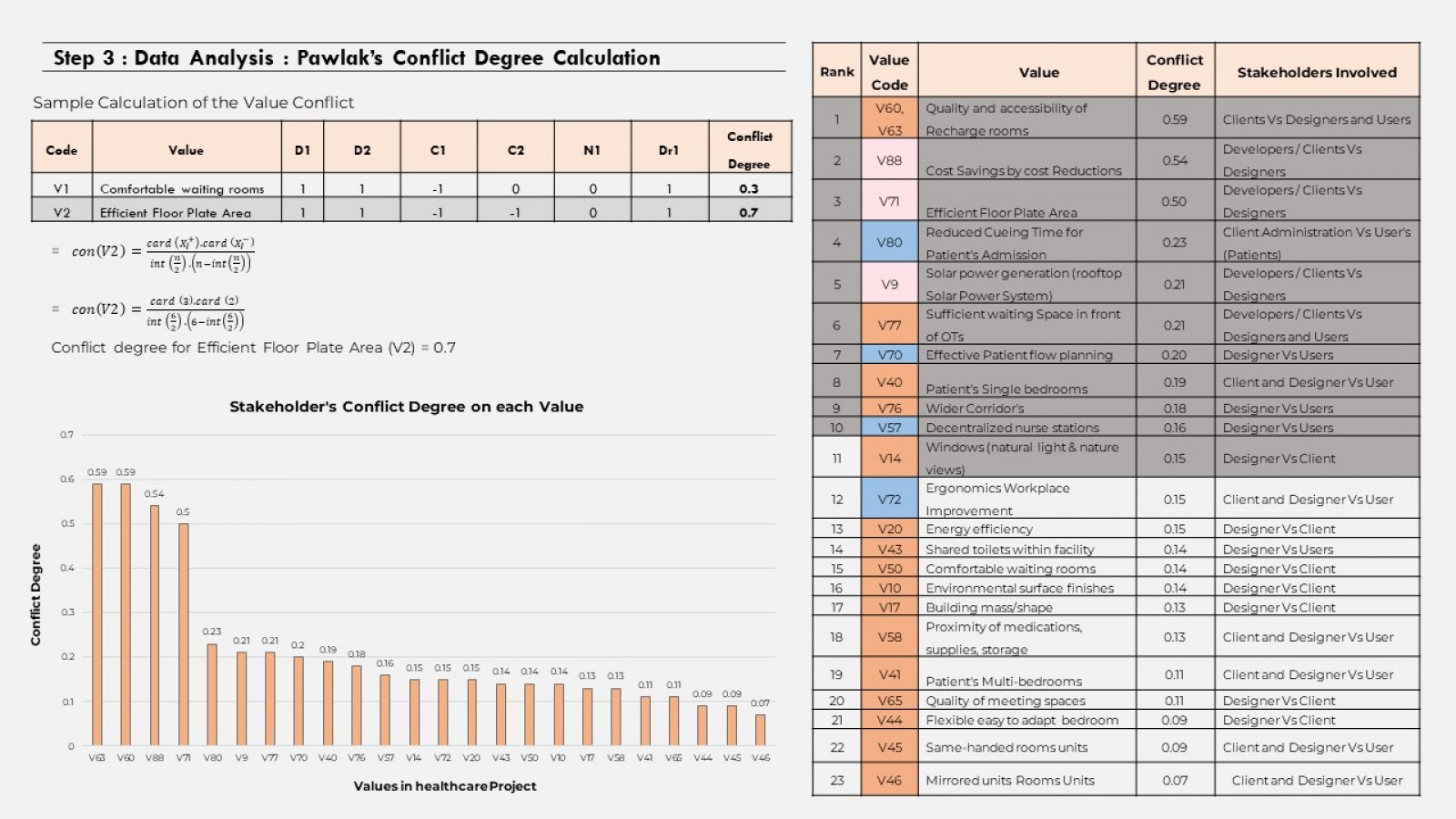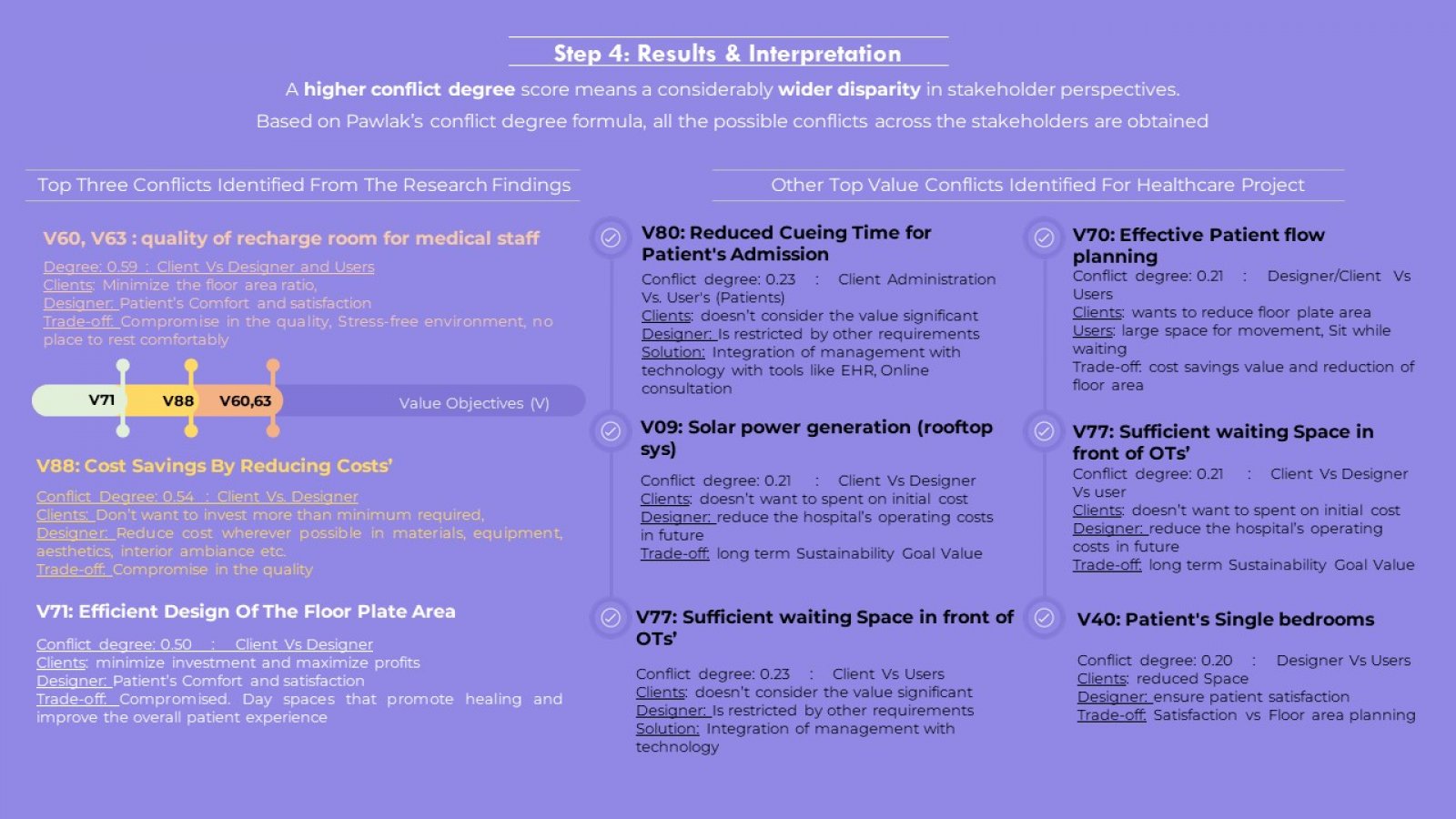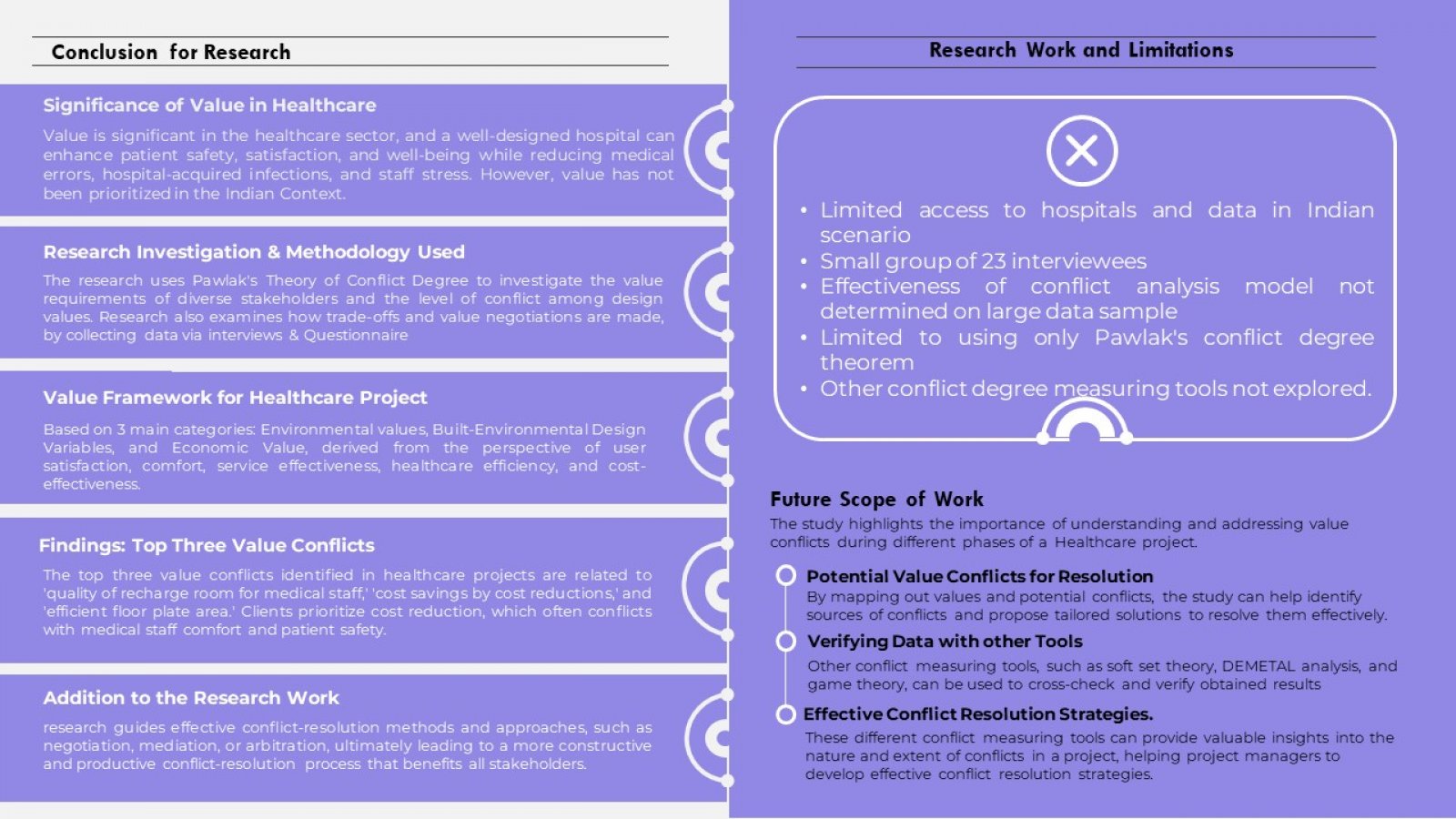Your browser is out-of-date!
For a richer surfing experience on our website, please update your browser. Update my browser now!
For a richer surfing experience on our website, please update your browser. Update my browser now!
The dynamic character of value in the design of healthcare facilities is investigated in this research. Despite its importance in healthcare, value has not been the primary focus. A well-designed hospital may improve user happiness, patient safety, and well-being. The study’s objective is to investigate the value requirements of diverse stakeholders and the level of conflict among design values in healthcare projects. Furthermore, the research examines how trade-offs and value negotiations are carried out. The qualitative study is based on Pawlak's conflict theory, which entails assessing each stakeholder group's key concerns and conducting conflict analysis using a systematic technique that can discover and quantify stakeholder disputes. A value framework is built for the healthcare project to identify potential value conflicts, and stakeholder attitudes toward each value are collected through semi-structured interviews and questionnaires. This enables the detection and analysis of potential stakeholder conflicts, which leads to suggestions for dealing with and resolving disputes in healthcare design initiatives. The findings indicate which stakeholders and the level of their dispute are involved in the most severe conflicts. The degree of conflict between the various design values drives the impacted stakeholders' trade-offs or value exchanges. The research could uncover possible conflict resolution and management solutions.
